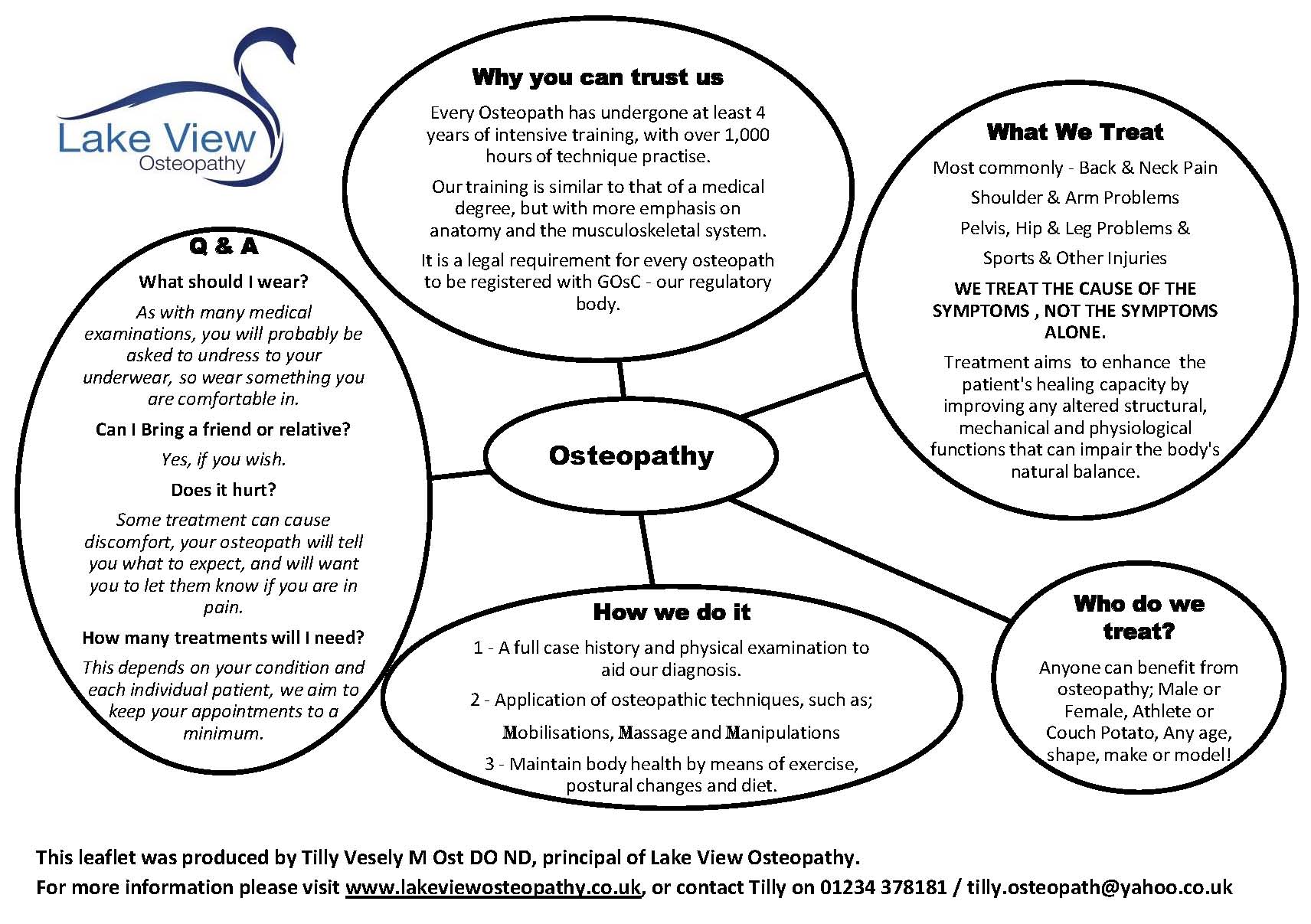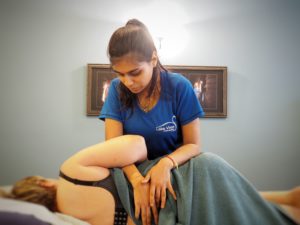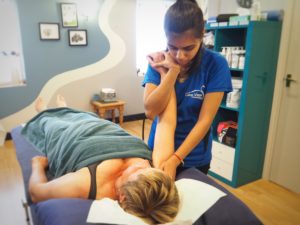'Anyone can find disease; the real skill is finding health...'
Dr Andrew Taylor Still, founder of Osteopathy 1874.
Osteopathy
Osteopathy is a Primary Health Care
Primary Health Care
Osteopathy is a primary health care – you don’t need a referral from your GP to book an appointment with us. We like to help all sorts of people with different aches and pains, from triathletes, golfers, horse riders and even non athletic injuries, (we know gardening and even sitting at computers can cause your pain too!).
Osteopathy is a gentle and effective hands-on approach to healthcare, based on the principle that the way your body moves influences how it functions. Osteopaths are highly competent healthcare professionals, recognised by the NHS as fully qualified to diagnose and treat independently.
Osteopathy is a hands-on treatment to help with a wide variety of muscular, joint or nerve problems and pains. Osteopathy is holistic – so we look at the WHOLE body, not just the area that hurts. This means that treatment addresses the underlying causes to your pain, not just the symptoms.
How can Osteopathy help you?
Osteopathy can help with a number of musculoskeletal problems including;
- Back and neck Pain
- Shoulder and arm problems
- Pelvis, hip, leg problems
- Sports and other injuries
Most people associate Osteopathy with “bad backs” and “clicking”, but there is so much more to osteopathy than just bad backs! We can treat any joint, muscle, nerve, ligament or tendon in the body. So if you have elbow pain you can still see an osteopath – we may even find out that it’s caused by your neck!
Can you trust us?
All osteopaths in the UK are regulated by the General Osteopathic Council (GOsC).
Osteopaths are required to renew their registration each year and we provide registrants with an annual licence to practise. As part of this process, the GOsC checks that osteopaths have current professional indemnity insurance, remain in good health and of good character, and
have met mandatory continuing professional development requirements.
The title ‘osteopath’ is protected by law. It is against the law for anyone to call themselves an osteopath unless they are registered with the GOsC, which sets and promotes high standards of competency, conduct and safety. The GOsC can, and will, prosecute individuals who practise as osteopaths when they are not on the GOsC Register. For information about what to do if you think someone is practising as an osteopath but is not on the Register, see our Protection of title page.
Want to know more?
Lets start with what osteopathy ISN’T!
Osteopathy is a non-invasive, non-pharmacological treatment for a vast number of muscular and joint problems.
So what IS osteopathy?
Osteopathy unifies a number of natural concepts and was founded by Dr Andrew Taylor Still in 1874. Osteopathy focuses on the importance of the musculoskeletal system** in the maintenance of health and is based on a number of principles, some of which are listed below;
– The Body is a Unit
– Structure and Function are Interrelated
– The body has self-healing and Self Regulating Mechanisms
**What is the musculoskeletal system? The musculoskeletal system, also know as the locomotor system gives us the ability to move using our muscular and skeletal systems. It is made up of the body’s bones, muscles, tendons, ligaments, cartilage and other connective tissue.
Restrictions within the joints of the body lead to increased stress to the internal environment, decreasing the body’s ability to heal itself.
Osteopathy aims to promote the body’s own self healing mechanisms to return the damaged tissues to health and restore harmony.
Osteopathy recognises that abnormalities in the structure and function of the body can cause much of the pain and disability we suffer. Therefore the patient’s biomechanics, function and posture are assessed and manual treatment methods are applied in an appropriate manner suited to each individual patient.
Osteopathy is holistic:
Osteopaths will evaluate each patient’s lifestyle, assessing the general impact of structural, psychological and nutritional stresses to each individual. In this way the whole
body is addressed. No matter where the symptoms of “dis-ease” are being expressed, the whole body is involved and must be treated.
Pain is a warning signal from the body, telling us that something is wrong. By alerting you to this problem it helps to prevent you from damaging your body further.
 Please click image to enlarge.
Please click image to enlarge.
If you want to find our more or book a treatment contact us now:
Phone 07530 860 800
Email: info@lakeviewosteopathy.co.uk






